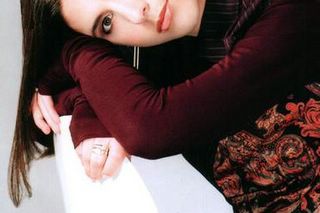Love Story
I got sucked in by a documentary the other night. I’d just gotten home and I thought I’d turn the tv on for a little background noise. I flicked through the channels to find something appropriate and I happened to pass the ABC. I stood there watching for a couple of minutes, fully intending to wander off, but then realised that I really wasn’t going to go anywhere and eventually sat down. I was in for the long haul, which I was quite happy to discover at the end of an enlightening half an hour, wasn’t that long at all.
The program itself was called Love Story and was hosted by the British Dr John Marsden (ie. not the Australian children’s author). He was discussing the science of love and relationships and some of what he had to say was really quite interesting. Initially he was talking about the three stages of love. First there’s lust, where your hormones will get you out, perhaps actually looking for someone. Then there’s attraction. This may be where you can’t stop thinking about another person. People often lose their appetite and some sleep and when confronted by the person in question, blood is likely to rush to the areas it could be needed and away from places it isn't - like the stomach - which is apparently why we get butterflies.
This stage also seems to involve a rather big chemical rush. The body will produce dopamine (which is also activated by cocaine and nicotine - no wonder people get addicted!), norepinephrine (also known as adrenalin which will get your heart racing) and I think it can even lower the body’s levels of serotonin which has been associated with anxiety and depression (that probably explains why some people are a little crazy in a new relationship). All this balances out however (because as a permanent state it’s really a little inconvenient) and we build up a tolerance for love’s chemicals and move on to the next stage, which is attachment.
After the first flush of love is over, and apparently it does end after 5 or so years - possibly to give us the opportunity to go on and produce new progeny with another partner and further the species - we can fall into the attachment phase. Here, the chemicals of oxytocin (which helps the bonding instinct) and vasopressin (which I think does something similar) are released during intimacy. This ultimately helps hold people together. But there were other things that were said to help too. Sharing fear (often misinterpreted as love although I don’t know how) apparently also helps to cement a relationship. So theme parks are really very healthy…
All in all, the program was quite fascinating although short and simple. There were some theories I’d heard before and others I hadn’t but it certainly provided some food for thought.


0 Comments:
Post a Comment
<< Home